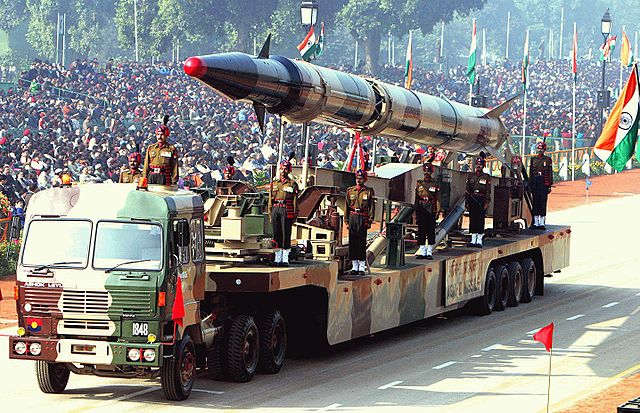The Indian military complaining about shortage of funds when a soldier-worshipping, super-nationalist party is in office sounds incongruous, but the incongruities are an integral part of India. “The 2018-2019 Budget has dashed our hopes… The marginal increase barely accounts for inflation and does not even cater for taxes,” the Army Vice-Chief, Lt-General Sarath Chand, told the parliamentary committee on defence last month. The Chief of Army Staff, General Bipin Rawat, tried to downplay the fears about preparedness a few days ago, but one has to be sanguine to believe that all is well on this front.
So, whatever happened to the BJP’s excessive glorification of our armed forces? It must be said in BJP leaders’ defence that sanctimoniousness is not its preserve, though nobody is equal to them in this department. For instance, a few months ago, Central Information Commission Yashovardhan Azad’s had to rule that a soldier or a policeman killed in action is, in official parlance, a “battle casualty” or “operations casualty.” An RTI applicant wanted to know the meaning and detailed definition of word shaheed (martyr) as per the law and the Constitution.
For in India, soldiers no longer die for their country; they attain martyrdom. In the melodramatic language of Hindi news channels: Bhatat Mata ke sapoot ne apni jaan nyochhawar kar di or Ek jaanbaz ne Bharat Mata ke charanon mein apne sheesh arpan kiya. Evidently, India is not a country but Mother India or, to be precise, Bharat Mata; and we, the people of India, are not the citizens of the world’s largest democracy but the children of Bharat Mata. Unctuousness has gone berserk.
Notice that all glorification is reserved for soldiers; seldom, if ever, has anybody even talked about others dying in the line of duty—electricians and gutter cleaners, for instance. The media recently reported several persons dying working in manholes; they are not even provided mandatory safety gear. But it never became a national issue. Sanctimony has little use of the mundane, and almost no fear of admonition.
Gertrude, however, received admonition from her own son, Hamlet, “Mother, for love of grace, lay not that flattering unction to your soul.” In India, however, we lay unction not only to our souls but everywhere—politics, institutions, society, culture, arts, everything. The Constitution is no longer a document which lays down the principles of polity and the norms of government functioning; it is, in the words of Prime Minister Narendra Modi, a “holy book.” In a similar vein, Parliament is described as something more than a place where our elected leaders make laws, discuss policy, and question government; it is the “temple” of our democracy. We are supposed to bow to the temple—and overlook the sacrilege that politicians carry out every day: rushing into the well, raising slogans, disallowing their rivals to speak, disrespecting the chair.
Hamlet went on to warn Gertrude about the consequences of unctuousness. The unction, he said, “will but skin and film the ulcerous place/Whilst rank corruption, mining all within,/Infects unseen. Confess yourself to heaven./Repent what’s past. Avoid what is to come./And do not spread the compost on the weeds/To make them ranker. Forgive me this my virtue,/For in the fatness of these pursy times/Virtue itself of vice must pardon beg…”
In the Indian context, the supply of unction is unlimited. As if the pointless, endless, and mindless eulogizing of soldiers in speeches, ceremonies, television and radio programmes, etc., were not enough, the National Highways Authority of India (NHAI) has directed all toll operators to train their staff to pay respect to armed forces personnel. The Times Of India (December 14) quoted an NHAI circular saying, “Armed forces personnel deserve the highest regard and should be given due respect at the toll plaza including salute and standing ovation as deemed fit.”
Come to think of it, toll plaza employees ignoring the queues of vehicles to stand up and salute soldiers. Some of the employees may not be properly dressed, or are in chappals, awkwardly, wrongly saluting soldiers. It would be quite a spectacle, and not a very edifying one. Theatrics couldn’t get funnier.
Meanwhile the excessive exaltation of soldiers goes hand in hand with political, bureaucratic apathy towards them. Soldiers have not been provided high-quality bullet-proof jackets, helmets, etc.
In a way, this is very Indian. Mother Goddess is venerated and feminine virtues are extolled—and women are ill-treated. The Ganges and other rivers are worshipped—and desecrated with sewage and industrial effluents. Indian democracy is lauded—and its core, that is, individual liberty, is eroded and its institutions undermined.
To be sure, sanctimoniousness and sentimentalism are not the new phenomena in India; it is, however, only recently that they have acquired ludicrous proportions and importance. By the way, politicians are not the only culprits. In which other country you have war movies made in which dying soldiers smear their faces with soil? In which other country you have tile makers advertising their wares as being made with desh ki mitti? In which other country prominent journalists argue that people should be forced to stand up when the national anthem is played? In which other country the authorities designate the handicapped people as ‘divinely-abled’ (divyang)? In which other country politicians refer young women as hamari behnein aur betiyan?
A great deal is rotten in the state, society, and culture of India; and we continue to spread compost on the weeds to make the rot ranker. The idea is never to weed out what is putrid; the endeavor is always for a cover-up—with clever use of language, ceremony, and circumstance. The question is: for how long the unction of rhetoric and spectacle will hide the ulcerous place?
